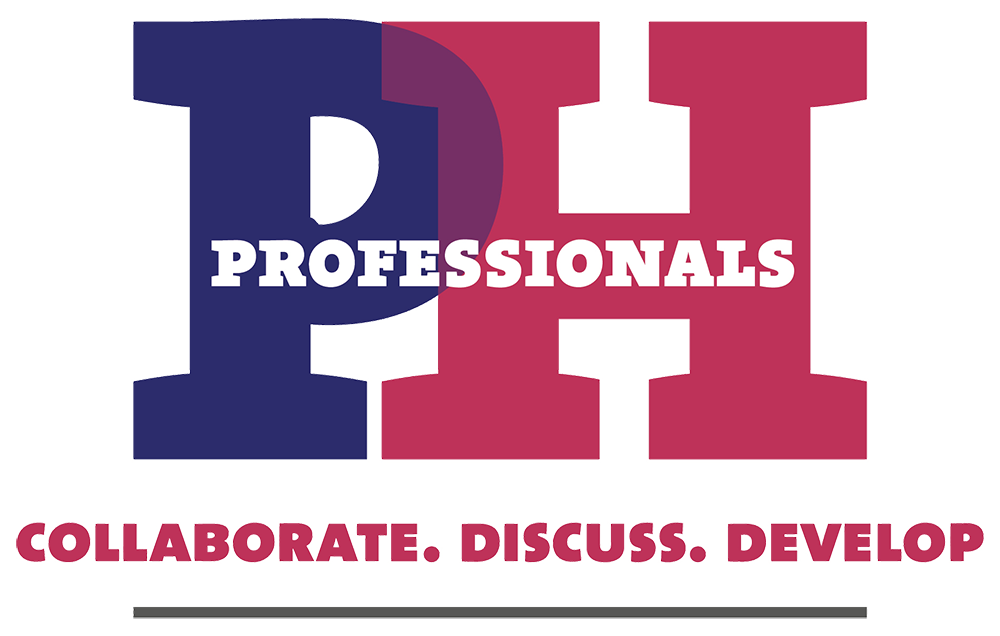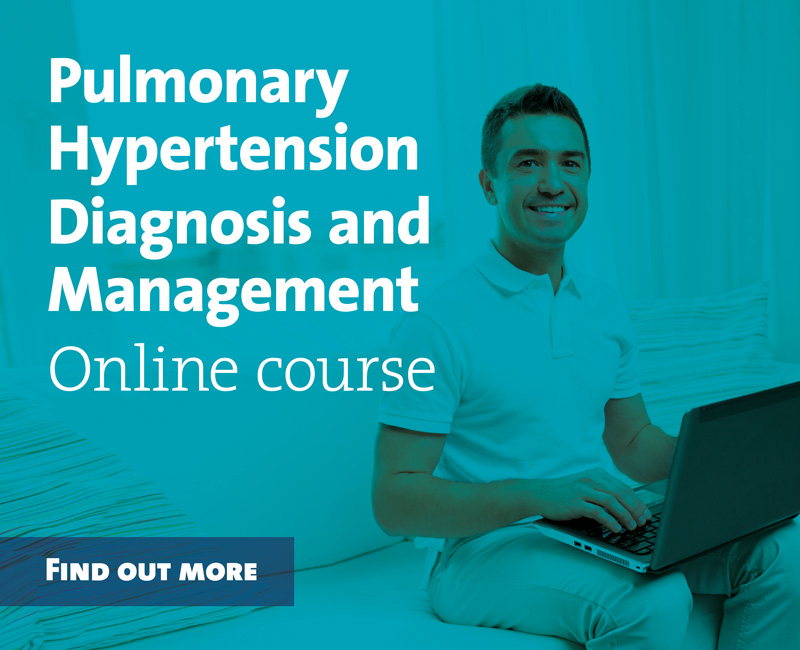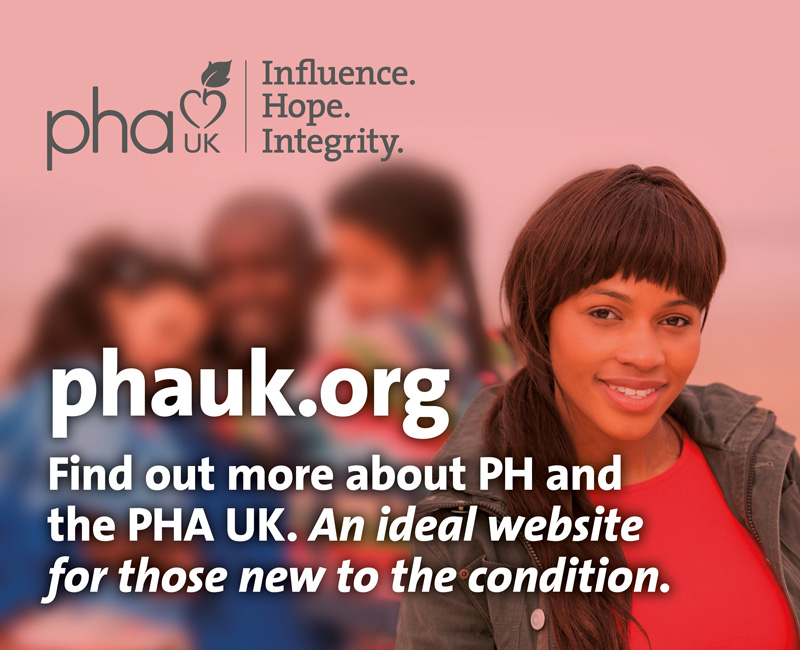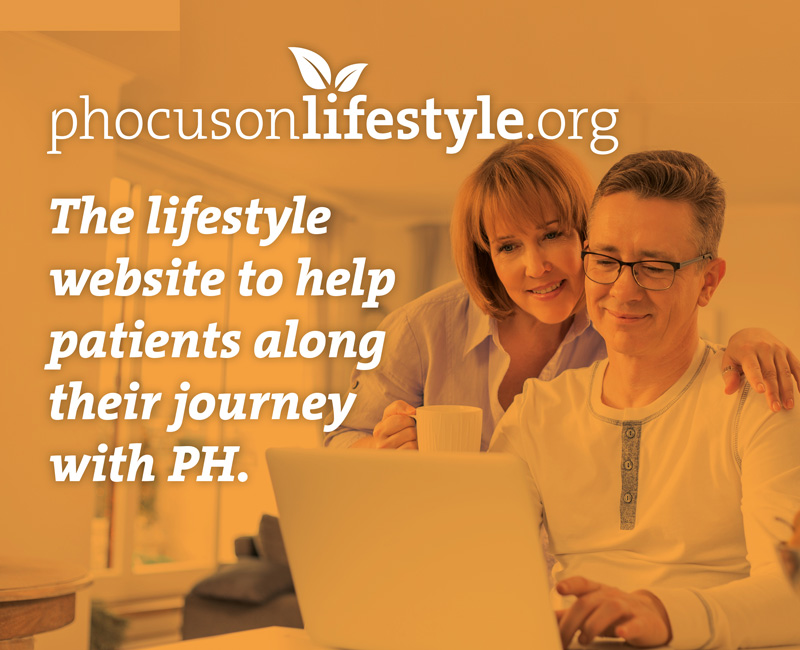The Interview: Rachel Crackett
Published September 2020
Rachel, who hails from Whitby, has been in nursing for over 30 years. She has spent the last 19 of them as clinical nurse specialist within the Northern Pulmonary Vascular Unit at Freeman Hospital in Newcastle.
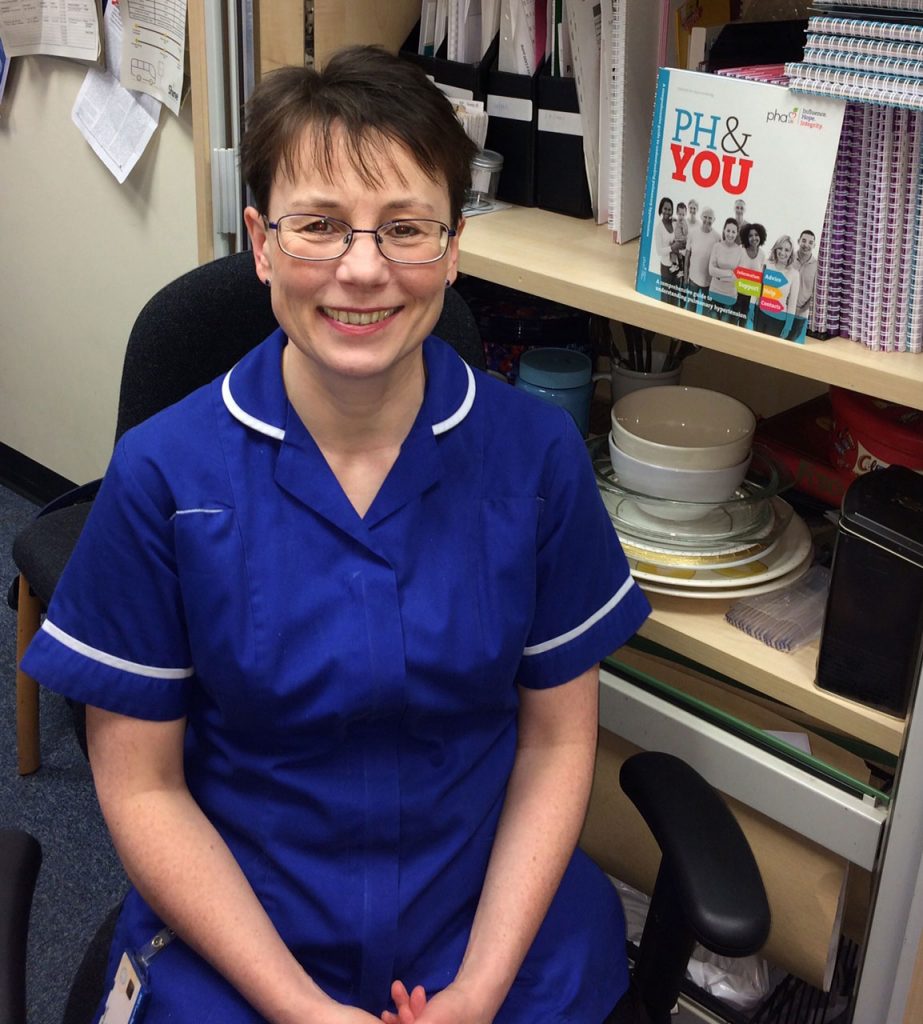
Previous roles have been in the cardiothoracic department in surgery, medicine, transplantation and research and during her time in PH, Rachel has completed a Masters degree in Nursing Science (Research Methods), gained a Nursing Practitioner RCN Award, and become an Independent Nurse Prescriber.
Her current role as clinical nurse specialist has given her the opportunity to be part of the development of the pulmonary hypertension service both locally and nationally. She has presented at educational programmes, is a member of the PH Professionals Group, and served as the Northern Senate representative on the National Commissioning Reference Group – which advised on national policy.
Have you always wanted to be a nurse?
No! I fell into it really. I had no idea what I wanted to do when I left school and ended up doing beauty therapy. From this, I discovered I liked working with people, but I enjoyed the therapeutic side more than the beauty side.
I was floundering a bit, unsure what I wanted to do, so decided to visit the Job Centre to ask for advice. Nursing was suggested to me as a career and that’s how it all began! The Freeman was my first choice as I had family in Newcastle, and I started my training there in 1988.
Did you find PH, or did PH find you?
A lot of my allocations during training were in the cardiothoracic unit, so when a job became available in coronary care, I went for it. I then moved onto a role on the transplant unit, before issues with my back meant I had to do some research work for a while.
Just as my back began improving, I saw the advert for a nurse specialist in the pulmonary hypertension service.
I knew Professor Corris – who headed up the unit – from the work I had done in transplantation, and all my research was in heart / lung transplantation. Plus, I had nursed PH patients post-transplant, so I thought this would be an opportunity to get them better before surgery too.
I knew, quite early on in my career, that I didn’t want to be an A&E nurse. I like stories, and seeing people through their journeys, and getting to know them well. I knew PH would give me that.
It was a new area of medicine at the time, so I knew it would be an interesting place to be. I started the role in April 2001, and 19 years later I am still here!
What does a typical day or week in your job look like?
I like to get into work early, I cycle to work (seven miles each way) which I find is good thinking / planning time, so getting in early gives me some time to shower, have some breakfast and prepare for the day ahead. I check my emails and have a cup of tea before phones start ringing!
Even though I plan my day, you never know what’s going to happen and things can change quite dramatically. You can have urgent referrals, or poorly patients, and that always takes priority. What I like about my job is that no two days are ever the same.
On Monday’s I do a nurse-led clinic in the afternoon. Tuesday’s are a telephone clinic in the morning and Wednesday’s are a very busy clinic day, with ward rounds too. Thursday’s are a catch-up day from the clinic the day before, checking results and making time for ongoing development and education.
On Friday’s we get together as a Multi-Disciplinary Team and do ward rounds. That tends to be a busy day.
I’m quite clinically ‘hands on’ and I do spend a lot of time talking to patients over the phone. At the Freeman we are the first point of call for outpatients so if they have a problem, they phone us first, and then we triage that – directing them to where they need to be.
Who or what inspires you in your work?
This might sound like a cliché, but it’s definitely the patients. I’ve been in nursing over 30 years, and in this job for 19, and the reason I have stayed where I am and not gone into management is because promotion takes you away from the patients. And I became a nurse because I like interacting with people and making that difference. That’s what inspires me.
I still remember people I have nursed right at the beginning of my career. They stay with you. And I still bump into transplant patients who I nursed through their operation 25 years ago!
I am able to tell patients, during the initial diagnosis chat, that I still have patients who were diagnosed 18 years ago – and that is reassuring. I find it really helpful that I’ve done the job for so long that I can say that.
Do you have any standout moments from your career?
Getting my Masters degree (in Nursing Science) was a stand-out moment for me. I never thought I would get a degree, never mind a Masters degree!
I’m proud of being part of the International Society for Heart and Lung Transplant. I’ve had work accepted and I’ve presented on the other side of the world and that’s quite an achievement, I think.
I have standout memories too. One of the earliest was as a student nurse, when I came back from a few days off to a card and present from a patient who wanted to thank me for caring for her. I still have that card to this day, in a box of keepsakes.
I still get nice cards from patients, and I look at them on bad days. I especially like to keep the handmade ones, and I get them back out to look at year after year.
Last Christmas I had a thank you card from someone who was transplanted 22 months ago. She was still thinking about me and for me, that is the epitome of what I do.
What is the best piece of advice you’ve been given, and who was it from?
I was told by my mother, very early on in my career, to never burn my boats. (You may have also heard it as never burn your bridges!) The idea behind it is that you never know when you might need to get back in your boat to leave the place you’re in.
You don’t know whether you might meet the people you passed on the way up, when you’re on your way back down. I’ve always stood by that. I worked with my current line manager 30 years ago – and I had no idea she would be my manager one day!
Treat everyone like you would want to be treated yourself, as you never know when the roles will be reversed.
My mum also told me, when I went off to start my nursing training, to remember that everyone I care for is someone’s daughter, father, brother or sister.
What are the biggest changes you’ve seen whilst working in the field of PH?
The biggest change has been the introduction of targeted oral therapy. I spent the first few years in the job mainly teaching people how to use nebulised or intravenous (IV) drugs but I do a lot less of that now.
It’s benefited patients because they can have a better quality of life if they are not having to do something six times a day, or be attached to a pump.
Some nebulised or IV treatments are still gold-standard and are very valid for the right people – but often not quite so soon.
And what do you expect to come next?
I think triple therapy will eventually become standard, like it is now for heart disease and some other conditions.
It’s already starting to happen; we’re already using upfront combinations where we never thought we would, and I think in the future when drugs become generic (when patents are lost) pretty much everybody will get triple therapy.
At the moment there is still criteria around who can have triple therapy. But in the years to come, I think that as long as the therapies can be tolerated, everyone will end up with one from each pathway. It will be standard practice.
In terms of the PH service as a whole, I would like to think that in the future it will still look like it does now, with designated specialist centres. The service is highly valued by patients and I truly believe that specialist care is the way forward.
We’re 20 years into targeted therapy now, which is still quite young in a disease process, and specialist knowledge is invaluable in managing this difficult condition.
What do you like to do away from work?
I’m quite busy when I’m not working. I play a melodeon (a bit like an accordion), and I sing in a community choir, which has performed at patient days at the hospital. I like to visit my mother down in Whitby and I’m president of my local Women’s Institute.
My husband of 25 years is also very musical, and we play and sing folk music together. Music is my life – and my therapy!
